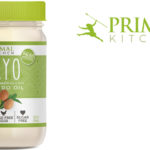Hyssop Oil: Improve Nutrient Absorbtion

(DetoxifySamurai) The perennial plant hyssop is native to the Mediterranean region and is considered a holy plant. During the time of the Romans, this herb was used against the plague, as a disinfectant and for treatment of minor infections. In some parts of the world, it had a spiritual function, and was believed to purify and “forgive sins. Christianity held hyssop in high regard– the herb was cited as a symbol of baptism and reconciliation. In other religions, it is associated with purification.
The plant grows up to 60 centimeters or 2 feet high, and has a “hairy” stem with small pointy leaves and blue, purple, or white flowers. Today, hyssop is cultivated for its essential oils in various parts of France. It is deemed one of the strongest antiviral essential oils out there because it contains nearly every type of chemical compound found in essential oils. However, the oil is still mild and gentle.
Uses of Hyssop Oil
Hyssop oil is currently used in aromatherapy to treat problems linked to the respiratory and digestive systems. It can also be used to bring relief to arthritic pain, sores, bruises, toothaches, and ear pain. It also contributes to the regulation of blood pressure and acts as a calming substance for anxiety and hysteria.
Other uses of hyssop oil are:
- Antispasmodic – Hyssop oil is used to help stop spasms in the respiratory system, nervous system, muscles, and intestines.
- Antiseptic – When applied on wounds, it can prevent them infection. The essential oil can also help wounds, cuts, and bruises heal faster.
- Massage and bath oils – When used as either one, hyssop oil helps relieve pain and fatigue. It can also be used to address menstrual pain.
- Febrifuge – This herbal oil is often used to lower body temperature and fever.
- Cicatrisant – It is often used on skin problems, such as insect bites, rashes, boils, and even pox. It may even be used on scars to make them disappear quicker.
- Stimulant – Oil of hyssop helps stimulate several systems in your body. For instance, it helps stimulate your digestive system to ensure better metabolism and nutrient absorption. It is also used to stimulate the nervous, endocrine, circulatory, and excretory systems.
Composition of Hyssop Oil
Research shows that the chemical composition of hyssop oil varied depending on the growth stage of the plant it is derived from. However, its main components included monoterpenes (cis-pinochamphone, trans-pinocamphone, and beta-pinene), and sequiterpenes (germacrene and elemol).
A study from Acta Scientiarum Polonorum discovered that hyssop oil extracted from the herb harvested during the vegetative stages had higher levels of trans-pinocamphone, but had lower concentrations of the same compound with plant growth. The amount of cis-pinocamphone increased during the plant growth. High levels of the phytochemical pinocamphone can make the plant oil toxic. The oil should therefore be used in moderation (at proper dosages) with the guidance of an aromatherapy professional.
Hyssop oil derived from the herb harvested during the vegetative stage had the highest amount of beta-pinene, while the monoterpene ketones was highest in oil produced from plants that was collected from the growth stages of the herb. For aromatherapists, pinene and monoterpene function as decongestants and are often used to loosen mucus membranes of the respiratory system.
Benefits of Hyssop Oil
Hyssop essential oil exhibited antibacterial and antifungal activity against certain trains of pathogenic organisms. One study found that the herbal oil showed strong antimicrobial activity against Staphylococcus pyogenes, Staphylococcus aureus, Escherichia coli, and Candida albicans. Oil of the hyssop plant also demonstrated potent antimicrobial activity against herpesvirus strains.
Apart from being an effective antimicrobial agent, hyssop essential oil is found to provide benefit in the following health conditions:
- Aging-related skin problems, such as sagging and wrinkles
- Muscle spasms and cramps, and acute abdominal pain
- Arthritis, rheumatism, gout, and inflammation
- Loss of appetite, stomachaches, flatulence, and indigestion
- Fevers
- Hypotension or low blood pressure
- Irregular menstrual cycles and menopause
- Respiratory problems, such as colds, cough, and flu
How does hyssop oil work?
The essential oil of the hyssop plant can be used in several ways. It can be applied topically on your skin or inhaled through a diffuser or vaporizer. Below are some ways to enjoy the benefits of this essential oil:
- Relieve fatigue, stress, and even any type of bodypain – Add 2 drops of hyssop oil to your bath water, preferably warm. Taking a bath in hyssop oil infused water may also contribute to a peaceful night’s rest.
- Address menstrual discomfort or menopausal symptoms – Mix 3 drops of hyssop oil with a carrier oil and use the mixture as a massage oil on your abdomen.
- Reduce pain as massage oil – Similar to the previous suggestion, use 3 drops of this oil blended with a carrier oil and massage on painful muscles. Rubbing the mixture on your stomach may also relieve gastrointestinal discomfort caused by indigestion and gas.
- Lower fever – Massaging 2 drops of this herbal oil with one milliliter of coconut oil on the soles of your feet may help reduce fever.
- Clear clogged respiratory tracts – When inhaled, hyssop oil can ease nasal congestion, breathing difficulties, colds, and cough. Use 2 drops in steam inhalation. You may also apply 2 drops of hyssop oil mixed with vapor rub onto your chest to induce the oil’s expectorant effect.
- Help heal and prevent scars – Add 2 drops of hyssop oil to your lotion or cream and apply topically.
Is Hyssop Oil Safe?
Using essential oils undiluted can cause allergic reactions and skin irritations. Prior to use, I recommend mixing this essential oil with a carrier oil like almond oil, coconut oil, or olive oil. To determine if you have a sensitivity to hyssop oil, first apply a drop to an affected area and observe any adverse effects that may occur.
Side Effects of Hyssop Oil
While many ancient civilizations found hyssop essential oil sacred, I believe it still possesses certain limitations. I advise hypertensive people to avoid using hyssop oil, as it can raise blood pressure.
Hyssop oil also has the potential to trigger convulsions and seizures when taken in small doses, repeatedly. As I mentioned before, the compound pinocamphone can make hyssop oil toxic and has been shown to cause epilepsy. It should not be used by epileptics. I also urge you to be extra careful in using hyssop oil, especially around children under five and infants, as it may cause fever and epilepsy. The oil can also cause skin sensitizations in children. Pregnant and nursing women should avoid using it without their doctor’s recommendation to avoid any complication.






